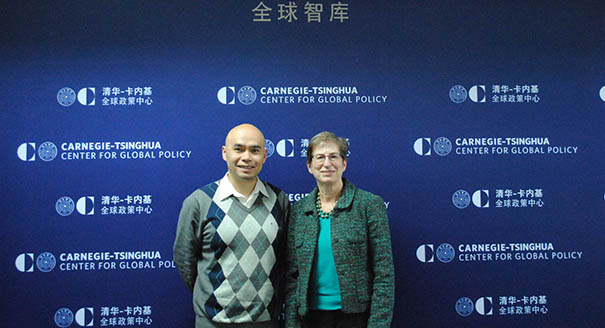Registration
You will receive an email confirming your registration.
The Carnegie–Tsinghua Center’s Tang Xiaoyang moderated a discussion with Beth Keck, practitioner-in-residence for China studies at the Johns Hopkins University School of Advanced International Studies. They examined the methodology behind environmental sustainability practices in leading corporations. The discussion aimed to identify the ways in which these practices interact with, and are influenced by, national and international environmental policies. This event was off the record.
Discussion Highlights
- Companies Committed to Addressing Climate Change: A panelist said that U.S. companies and multinational enterprises remain committed to addressing environmental sustainability despite the Trump administration withdrawing from commitments to address climate change. Most notably, the panelist said U.S. firms have stated that they will uphold their individual commitments to the Paris Climate Agreement, which the discussant argued is an indication of the importance of sustainability in making businesses more competitive and relevant.
- Higher Education’s Role in Promoting Sustainability: Business schools are increasingly driving companies toward having conversations on incorporating environmental sustainability, one panelist said, as students bring practical solutions to addressing environmental challenges to their careers. The discussant argued that higher education is playing a larger role in revolutionizing the business community and ensuring mainstream business practices incorporate environmental sustainability.
Beth Keck
Beth Keck is practitioner-in-residence for China studies at the Johns Hopkins University School of Advanced International Studies. Her research focuses on international business, global public affairs, and corporate responsibility.
Tang Xiaoyang
Tang Xiaoyang is a resident scholar and the deputy director of the Carnegie–Tsinghua Center for Global Policy.
